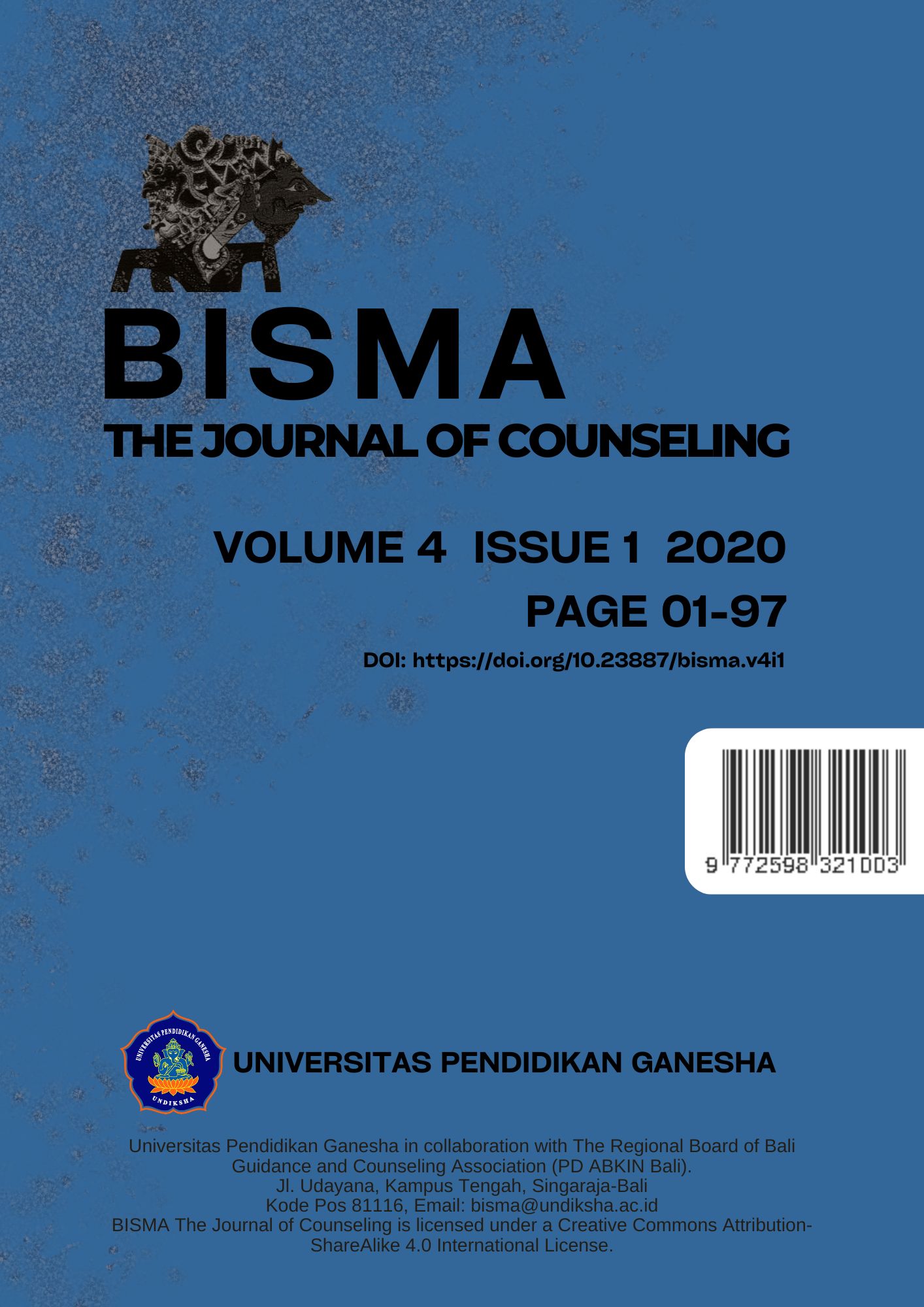Application of Solution-Focused Brief Therapy (SFBT) to Help Clients with Anxiety Issues
DOI:
https://doi.org/10.23887/bisma.v4i1.24709Keywords:
Counseling, anxiety, Solution-Focused Brief Therapy, MalaysiaAbstract
The counseling services were created to help people deal with life's problems in more effective ways. Various theories and approaches have been introduced so that practitioners are more confident and have directions in carrying out their duties. Solution-Focused Brief Therapy (SFBT) is one the approaches that views individuals have inner strengths and can deal with the problems they are facing in their daily lives. Feeling anxious is everyone's normal emotion. However, for some people, this anxiety can disrupt their life. This concept paper examines whether the Solution-Focused Brief Therapy (SFBT) is suitable to be applied for clients who suffer from anxiety issues in life.
References
Bannink, F. P. (2007). Solution-Focused Brief Therapy. J Contemporary Psychotherapy, 37, 87–94.
Dermer., S. B., Robey, P. A., & Dunham, S. . (2012). A comparison of Reality Therapy and Choice Theory with Solution-Focused Therapy. International Journal of Choice Theory and Reality Therapy, 31(2).
Kraft, D. (2012). Panic disorder without agoraphobia: A multi-modal approach – Solution- Focused Therapy, Hypnosis and Psychodynamic Psychotherapy. Of Integrative Research, Counselling and Psychotherapy, 1(1).
Roeden, J. M., Maaskant, M. A., Bannink, F. P., & Curfs, L. M. G. (2011). Solution-Focused Brief Therapy with People with Mild Intellectual Disabilities: A Case Series. Journal of Policy and Practice in Intellectual Disabilities, 8(4).
Sumari, M., Tharbe, I. H. A., Khalid, N. M., & Nor, A. M. (2014). Teori Kaunseling dan Psikoterapi. Universiti Malaya.
Tapolaa, V., Lappalainen, R., & Wahlstrom, J. (2010). Brief intervention for deliberate self-harm: an exploratory study. Suicidology. www.suicidology-online.com
Wood, J. J., McLeod, B. D., Piacentini, J. C., & Sigman, M. (2009). One-year follow-up of family versus child CBT for anxiety disorders: Exploring the roles of child age and parental intrusiveness. Child Psychiatry and Human Development, 40(2), 301-316.









